June 2019: Olive Tree

Volume II/Issue 38/June 2019


From The Editorial Desk
Happy Fathers Day-Was King David a Bad Father?
I cannot tell you how many times I have heard people accuse king David of being a poor father. People love to pontificate on the failures of David as a dad. They love to speak of the mistakes they think David made. Forgive me but I want to take issue with all of these critics. Where in the Scriptures does it say David failed his children? Did he handle every situation properly? No parent ever has but I don't know which situations he handled properly and which ones he didn't. You don't know either. Was David a good father? I don't know and you don't know either. Do I think he did his best? I believe that David did his best in everything. He failed like all of us fail. Let me make a few observations about David as a father.
1. He was a shining example in almost every way.
David lived a life honoring to God. Yes, he sinned, but he also repented. That's a good example to anyone's children. Your lesser so-called sins are just as obvious to your children as David's was to his. Have you repented of yours? David showed a great amount of love and respect for his God. His example alone makes him a pretty good father in my book.
2. David did what God led him to do.
That may not have lent itself to an easy childhood for his kids. We have no right to judge David as a father merely because being the king's child was difficult. Of course it was difficult. Life is difficult. Every child faces difficulties in their situation. That's what supposed to make them stronger.
3. David was a man after God's own heart.
Apparently all of his children were not after God's own heart. The life of David should have been enough to influence those children. How can we judge David as a dad when God calls him a man after his own heart. He does not say he's a man after God's own heart except that he was a bad father. We read that into it.
4. David's children made their own choices after they were adults.
I don't care who you are, you are not immune to your children making bad choices. How in the world can I blame my parents for my choices. As long as I lived under their roof I lived under their rules. I submitted to their leadership and authority. Once I stepped out from underneath their roof and became a man, my choices were mine. Those choices were not determined by how good my parents were. They were determined by how good a Christian I was. The same is true of David's children.
5. David grieved over his kids.
Say what you will but David had a loving heart. When Absalom was killed David sorrow was real. He would have chosen to die himself if he could have. I believe David loved Absalom as much as any dad loves a son. How could we question David and his love for his kids unless we are looking for some kind of way to tarnish his character. I refuse to jump on that bandwagon. I choose to believe that David loved his kids dearly.
Why do we judge parents so harshly when their adult children make terrible choices? Why do we condemn them as poor parents when they have shown of life of commitment to the Lord? Maybe we are jealous. Maybe we are looking for something to justify our lack of commitment to God. All I know is that we should not decide whether or not David was a good parent because God never told us. Let me make two final observations.
1. Don't judge a parent because of the choices of their children.
2. Don't live in guilt of being a bad parent because your children made bad choices.
It's that simple. I hope it helps someone.

He Must Increase
The principles of the spiritual life are actually quite simple. Some complicate things in order to find a way around giving themselves completely over into God's hands. Saint John the Baptist said of Jesus Christ: "He must increase, but I must decrease." (John 3:30) And this is the basic principle of the spiritual life, all Thee, O Lord, and no me. Saint Paul says: "For if any man think himself to be some thing, whereas he is nothing, he deceiveth himself."
At the end of the second chapter of Second Corinthians on into the beginning of the next chapter, Saint Paul describes three types of people: "For what man knoweth the things of a man, but the spirit of a man that is in him? So the things also that are of God no man knoweth, but the Spirit of God. Now we have received not the spirit of this world, but the Spirit that is of God; that we may know the things that are given us from God. Which things also we speak, not in the learned words of human wisdom; but in the doctrine of the Spirit, comparing spiritual things with spiritual. But the sensual man 1 perceiveth not these things that are of the Spirit of God; for it is foolishness to him, and he cannot understand, because it is spiritually examined. But the spiritual man judgeth all things; and he himself is judged of no man. For who hath known the mind of the Lord, that we may instruct him? But we have the mind of Christ. And I, brethren, could not speak to you as unto spiritual, but as unto carnal. As unto little ones in Christ. I gave you milk to drink, not meat; for you were not able as yet. But neither indeed are you now able; for you are yet carnal. For, whereas there is among you envying and contention, are you not carnal, and walk according to man? For while one saith, I indeed am of Paul; and another, I am of Apollo; are you not men? What then is Apollo, and what is Paul? The ministers of him whom you have believed; and to every one as the Lord hath given."
The Douay-Rheims has a footnote describing the first type of person: ""The sensual man":
The sensual man is either he who is taken up with sensual pleasures, with carnal and worldly affections; or he who measureth divine mysteries by natural reason, sense, and human wisdom only. Now such a man has little or no notion of the things of God. Whereas the spiritual man is he who, in the mysteries of religion, takes not human sense for his guide: but submits his judgment to the decisions of the church, which he is commanded to hear and obey. For Christ hath promised to remain to the end of the world with his church, and to direct her in all things by the Spirit of truth."
At the other end of the spectrum is the spiritual person, which is who we should be.
Notice that the spiritual person is ready for the meat, which means he is well versed in spiritual principles. The Psalmist tells us (Psalms 1:2): "But his will is in the law of the Lord, and on his law he shall meditate day and night." And Saint Paul: "pray without ceasing." (I Thessalonians 5:17) In addition to their hour of prayer every day, the spiritual man stays with God as much as duty will allow. His thoughts always turn to the things of God rather than the things of earth, which the sensual man focuses on.
Now let us turn to the carnal man. And this is many of us want to remain, carnal with one foot still in the world and the other in heavenly things. Notice that Saint Paul cannot feed the carnal meat. Like little babies, we are only ready for milk. If we look at our lives honestly, we will realize that we are still on the bottle spiritually, because we are still carnal. Saint Paul tells us further: "For whereas for the time you ought to be masters, you have need to be taught again what are the first elements of the words of God: and you are become such as have need of milk, and not of strong meat. For every one that is a partaker of milk, is unskillful in the word of justice: for he is a little child. But strong meat is for the perfect; for them who by custom have their senses exercised to the discerning of good and evil." (Hebrews 5:12-14)
We should be perfect, that is perfectly conformed to and united to the holy will of God. Jesus is quite clear on this point: "Be you therefore perfect, as also your heavenly Father is perfect." (Matthew 5:48) This is our goal, and we are standing in the way, which is why we must decrease, so that Jesus may increase in our lives.
And it is very important that we get serious about becoming truly spiritual, because only the spiritual can understand the truth. The carnal may get some idea, but they cannot grasp spiritual things. Their mind is clouded with earthly things.
In the November 2018 Olive Tree we considered an Act of Submission to the Will of God. https://www.vaticaninexile.com/november_2018_olive_tree.php This is a good place to begin our spiritual journey by turning our lives completely over to Almighty God, as we are reminded several places in Scripture to give Him our whole mind, body, soul and strength. We can not hold anything back from Almighty God. As they say, we must go all in.
Let us remember, He must increase and I must decrease.
1 "The sensual man": The sensual man is either he who is taken up with sensual pleasures, with carnal and worldly affections; or he who measureth divine mysteries by natural reason, sense, and human wisdom only. Now such a man has little or no notion of the things of God. Whereas the spiritual man is he who, in the mysteries of religion, takes not human sense for his guide: but submits his judgment to the decisions of the church, which he is commanded to hear and obey. For Christ hath promised to remain to the end of the world with his church, and to direct her in all things by the Spirit of truth.

Devotion to the Most Sacred Heart of Jesus.
June is the month dedicated to the Most Sacred Heart of Jesus. It is good for us to reflect on this fact because too often the world has forgotten . . . . or shall we say more accurately, it has neglected . . . its' devotion to the Sacred Heart of Jesus. Indeed, it is fitting that we picture Our Lord with the Sacred Heart showing. When we see the Sacred Heart portrayed in pictures, do we not think of the immense love which Our Blessed Saviour has for us? In popular culture, do we not equate our "heart" with "love?" Everyone has certainly heard the quote, for example: "Home is where the heart is," have we not? On St. Valentine's Day do we not exchange cards decorated with images of hearts and give heart-shaped boxes of candy and heart-shaped balloons to those whom we love? Do not those in love say to their intended: "I give you my heart" . . . "You are in my heart" . . . . Do we not respond to the question, "How much do you love me?" with the response, "I love you with all my heart!" So, in this light, it would seem completely acceptable to think about how much Our Blessed Saviour loves us and picturing His Most Sacred Heart in the process.
When Our Lord was giving His famous Sermon on the Mount, part of what He chose to speak about was the fact that those here on earth spend so much time and effort trying to obtain worldly possessions. Our Lord stated: "Lay not up for yourselves treasures upon earth, where moth and rust doth corrupt, and where thieves break through and steal." (St. Matthew 6:19) Are we any different from those to whom Our Lord was speaking to some two-thousand years ago? Do we not lay up treasures here on earth for ourselves? We have to have the latest styles and fads when it comes to clothing so that we do not appear "different" from everyone else. We have to have the latest electronics. Do not people practically run to the store when the latest version of the I-phone arrives or the latest version whatever phone brand we prefer. Do we not see images on the nightly news of people lining up to buy the hottest video game when it is released to the public? Do we anticipate the biggest block-buster movies from Hollywood and line up to purchase our tickets as soon as the movie is released? Do we not fixate on whatever we desire until we get it? And then before you know it we begin fixating on the next worldly treasure which society tells us we just have to have. Our Blessed Lord indeed knows the heart of man when He stated: "For where your treasure is, there will your heart be also." (St. Matthew 6:21) Whether it be earthly treasures . . . . fancy phones . . . latest styles of shoes or clothing . . . drugs or drink . . . . riches . . . money . . . Do we not hold these things close to our heart? Whatever we treasure on earth, we will also keep these things in our heart.
In the Old Testament we read: "As in water face answereth to face, so the heart of man to man." (Proverbs 27:19) What this proverb means from Scripture is simply that just as we can see what we look like if we see our reflection in the water or see our reflection in a mirror, so too will the man be reflected by what he holds dear in his heart. If this is true of us human beings, what can be said about the Most Sacred Heart of Our Blessed Savior? Pope Leo XIII stated: "There is in the Sacred Heart the symbol and express image of the infinite love of Jesus Christ which moves us to love in return." The infinite love of Jesus Christ! What an image, indeed! . . . the express image of the infinite love of Jesus Christ .
If we consider for just a moment the portraits or paintings we have seen concerning the Sacred Heart of Jesus, many of these portraits show Our Blessed Lord presenting His Heart to us . . . His Sacred Heart. Do we not say that we give our heart to the one we love? So is it so hard to believe that Our Blessed Saviour would be of similar mind when it comes to sentiment of heart? Without a doubt, Our Blessed Lord does give us His love. Our Blessed Lord does give us His Heart . . . . His Most Sacred Heart. "But sanctify the Lord God in your hearts: and be ready always to give an answer to every man that asketh you a reason of the hope that is in you . . . . " (I St. Peter 3:15) We should always keep God in our hearts if He is indeed a treasure to us. If we treasure something we possess, we do not hesitate to tell others of our love, do we? Proud parents are quick to tell of their beautiful child and their child's accomplishments, for example. Those who enjoy a particular hobby are happy to talk about their hobby with anyone who shows interest. So, too, should we follow the advice of St. Peter and explain the hope which is in our heart. We should explain to the world that our hearts belong to Our Lord and Saviour, Jesus Christ, Who first gave His Heart to us, His Most Sacred Heart!
St. Mary Margaret Alacoque stated: "Consider often that it is only the humble of heart that can enter into the Sacred Heart of Jesus Christ, and converse with Him, Love Him and be loved by Him." Let us always do our best to stay close to the Sacred Heart of Jesus. The world does what it can to lure us away from God. The world distracts us. The world grabs our attention. The world tries its' best to find its' way into hearts. And, sadly, for many in the world today, the world does just that. Let us never stray for Our Lord's Most Sacred Heart. It is there that His love radiates toward the entire world.

The Funny Pharmacy
A joyful mind maketh age flourishing: a sorrowful spirit drieth up the bones. - Proverbs 17:22
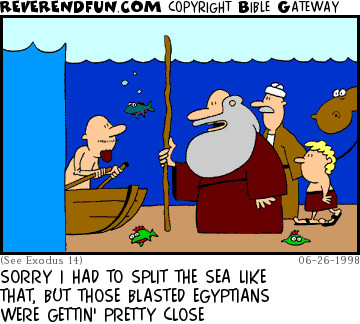



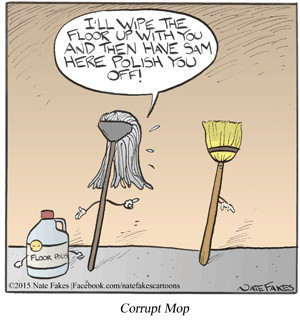


The reason why John XXIII was not a Pope was that he was a heretic before and after his election?
John XXIII was a public heretic prior to his apparent election by statements and actions he had made in France and Venice. His file in Rome was marked as suspected of Modernism. He also made heretical statements after his apparent election.

The Pope Speaks: June 2019
The Great Apathy
"Let no man deceive you by any means, for unless there come a revolt first, and the man of sin be revealed, the son of perdition, Who opposeth, and is lifted up above all that is called God, or that is worshipped, so that he sitteth in the temple of God, shewing himself as if he were God." (II Thessalonians 2:3-4) The Douay-Rhiems has a footnote on the revolt:
"A revolt": This revolt, or falling off, is generally understood, by the ancient fathers, of a revolt from the Roman empire, which was first to be destroyed, before the coming of Antichrist. It may, perhaps, be understood also of a revolt of many nations from the Catholic Church; which has, in part, happened already, by means of Mahomet, Luther, &c., and it may be supposed, will be more general in the days of the Antichrist."
Some call the revolt the Great Apostasy from the Greek word, which is translated as revolt. Islam is a form of apostasy. Mohammed was inspired by a Nestorian (heretical) monk in part, when he merged Judaism, Christianity and his own ideas to found his own religion, much as Joseph Smith was to do centuries later in forming the Mormon heresy. Apostasy means a falling away from the Faith.
From 1962 to 1965 a council was held, which Angelo Roncalli, the second Antipope John XXIII in history, which he called the Second Ecumenical Council of the Vatican. (More commonly known as Vatican II) However it defined the doctrines of a new sect, called the Conciliar Church, which Roncalli governed from 1958 until 1963 and was followed by John the Baptist Montini, Paul VI. Some consider that Vatican II and its perfidious spirit, which led to a revision of the essential rights of the Sacraments as well as the spreading of many heresies was the Great Apostasy. The spirit of Vatican II is that truth is not unchangeable, but changeable. Thus what was condemned as false in the nineteenth century, a hundred years later became truth, as Joseph Ratzinger (Benedict XVI) would call Vatican II a counter-syllabus, meaning it over turned the Syllabus of Errors.
The question arises, has the son of perdition, the Antichrist, arisen. Some considered John the Baptist Montini as the Antichrist, but considering his name, he was more like a forerunner to Antichrist, preparing a church to receive Antichrist, as John the Baptist was the forerunner of Jesus Christ.
Since the Antichrist hasn't come, but things appear to be coming into place for his advent, where are we now?
In the 1960's until the late 1970's, people began to see through the Conciliar Church and to leave it. Some left Catholicism entirely, while others formed what eventually would be called the Traditionalist movement. The Great Apostasy mutated into what a priest friend calls the Great Apathy. Everyone found a comfortable pew by the end of the 1970's to sit in and attend Mass. We have become complacent with the status quo and the Conciliar Church and the Traditionalist Movement has become acceptable to the world. Instead of the Church Militant on fire with the love of God, we have become the Church Comfortable and become the religious equivalent of a couch potato, a pew potato.
Jesus warned of these times: "And because iniquity hath abounded, the charity of many shall grow cold." (Matthew 24:12) Charity is the love of God and the love of our neighbor for the love of God. Do we have charity? We need to reread the thirteenth chapter of First Corinthians on the virtue of charity. Do we have all of those marks?
The prophet Amos (8:11) tells us of these times: "Behold the days come, saith the Lord, and I will send forth a famine into the land: not a famine of bread, nor a thirst of water, but of hearing the word of the Lord." Are we here out of curiosity or are we here to hear the Word of God? Are we ready to take what is preached here to heart and change our lives from a sensual life to a spiritual one? Or will we remain apathetic?


Dear soul, it is a joy to write to you again.
This month's "decade" from Evagrius gives some much-needed reminders, especially as we head into a new season. We are encouraged to be sober and watchful.
Let us prayerfully read our instructions and take them to heart. Our time with our instructor Evagrius now grows very short. The next time we visit, we will complete the course of his instructions to us. Let us all the more resolve to live the life of prayer, which is nothing more or less than the divine life of grace!
And let us pray for each other, dear soul. On to the instructions:
131. Do not shun poverty and affliction, the fuel that gives wings to prayer.
132. Let the virtues of the body lead you to those of the soul; and the virtues of the soul to those of the spirit; and these, in turn, to immaterial and principial knowledge.
133. If you are praying to overcome some thought, and it subsides easily, examine carefully how this has come about; otherwise you may be deluded into attributing the cause to yourself.
134. There are times when the demons suggest thoughts to you and then urge you to rebut them with prayer; whereupon they withdraw of their own accord, so as to deceive you into imagining that you have begun to overcome such thoughts and to rout the demons.
135. If you pray to overcome a passion or a demon who is troubling you, remember the words: 'I will pursue my enemies, and overtake them: and I will not turn back until they are consumed. I will dash them to pieces and they shall not be able to stand: they shall fall under my feet' (Ps. 18:37-38). Say this when needed and so arm yourself with humility against your enemies.
136. Do not think that you have acquired holiness unless you have reached the point of shedding your blood to attain it. For, according to the Apostle, we must battle unremittingly against sin even if it means death (cf. Eph. 6:11- 17;Heb. 12:4).
137. If you do good to one person, you may be wronged by another and so feel injured, and say or do something stupid, thus dissipating by your bad action what you gained by your good action. This is just what the demons want; so always be attentive.
138. Be ready for the attacks of the demons, and think how to avoid becoming their slave.
139. At night the cunning demons try to disturb the spiritual teacher by direct attack; in the daytime, they attack him through other people, besieging him with slander, distraction and danger.
140. Do not try to avoid the fullers. Let them beat, trample, stretch and smooth; and your garments will be all the brighter.

Saints from East and West
Saints whose feasts are celebrated this month
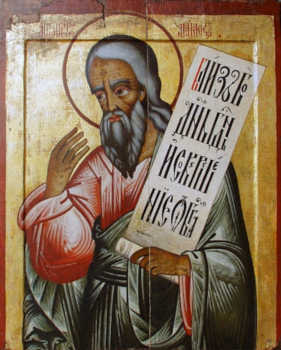
June 15 (Byzantine) - The Holy Prophet Amos
The Holy Prophet Amos, third of the Twelve Lesser Prophets, lived during the eighth century before the Birth of Christ. At this time the Hebrew nation was divided into two kingdoms: the Judean and the Israelite. The Judean king Hosiah ruled in Jerusalem, but the ten separated Israelite tribes were ruled by Jeroboam II, an idol-worshipper. At Bethel he set up an idol in the form of a golden calf, which they worshipped, having rejected the True God of the Israelites.
The Prophet Amos was a Judean, native to the city of Thekui. Simple and untaught, but strongly fervent of faith and zealous for the glory of the True God, the shepherd was chosen by the Lord for prophetic service and sent to the Israelite kingdom for the purpose of denouncing the impiety of King Jeroboam, and the Israelites for falling away from God. The prophet predicted for them a great misfortune, which would befall the Israelite kingdom, and the pagan nations surrounding it, for their impiety.
Because of his denunciations, the Prophet Amos repeatedly suffered beatings and torture. But he again returned to Bethel, and threatening inevitable misfortunes, he continued to call the Israelites to repentance. The pagan priest Amasiah of the idolatrous temple in particular hated the prophet. The prophet predicted for him and all his household a speedy destruction and for this he was subjected to a beating. The son of Amasiah, Hosiah, struck the saint on the head with a club and seriously wounded him. The Prophet Amos, still alive, reached his native village and there he died in about the year 787 before the Birth of Christ.
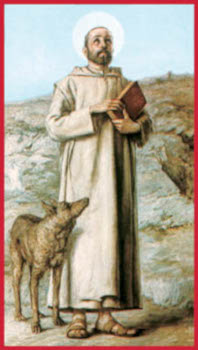
June 25 - Saint William of Vercelli, Abbot of Montevergine
The founder of the religious congregation known as the Hermits of Monte Vergine came of a Piedmontese family and was born at Vercelli in 1085. After the death of his parents, whom he lost in infancy, he was kindly cared for by relations, but at the age of fourteen he abandoned his home and set out as a poor pilgrim for Compostela in Spain. Not satisfied with the hardships such a journey entailed, he had two iron bands fastened round his body. How long William remained in Spain is not recorded. We hear of him next in 1106, when he was at Melfi in the Italian Basilicata, and then at Monte Solicoli, on the slopes of which he remained for two years, leading a penitential life with a hermit. To this period belongs Saint William's first miracle, the restoration of sight to a blind man. The cure made him famous, and to avoid being acclaimed as a wonder-worker he left the neighbourhood to stay with Saint John of Matera. They were kindred spirits and became close friends. It was Saint William's intention to proceed on a pilgrimage to Jerusalem, and he would not allow himself to be deterred by John's assurance that God had other work for him to do. He actually started, but he had not got far when he was attacked by robbers. He took this as a sign that John was right, and relinquished his journey.
He now betook himself to a height between Nola and Benevento, which was then called Monte Virgiliano - possibly after the great Virgil, who is said to have sojourned there. At first William attempted to live there as a hermit, but he was soon joined by would-be disciples, both priests and laymen. He formed them into a community and from the church which he built in 1124, under the name of our Lady, the mountain has derived its present name of Monte Vergine. The rule he instituted was most austere: no wine, meat, or dairy produce was allowed, and on three days of the week only vegetables and dry bread. After the first fervour had cooled, murmurs arose and there was a general demand for relaxation. William had no desire to constrain the malcontents, though for himself any relaxation seemed unthinkable. He therefore chose a prior to rule the community, and then departed with five faithful followers. With Saint John of Matera, who now joined him, he made a second settlement at Monte Laceno, in Apulia. Here, however, the barrenness of the soil, the exposed position, and the high altitude made life a misery to all but the most hardy, and even they could with difficulty hold out through the winter. Saint John had more than once urged removal, when a fire which destroyed their huts compelled them to descend into the valley. There the two holy men parted: John to go east and found one monastery at Pulsano on Monte Gargano, and William to found another on Monte Cognato in the Basilicata.
When that community was well established, Saint William treated it as he had treated the monastery at Monte Vergine - he gave it a prior and left it to govern itself. At Conza, in Apulia, he founded a monastery for men, and at Guglietto, near Nusco, he established two communities, one of men and the other of women. King Roger II of Naples afterwards drew him to Salerno, in order that he might have the benefit of his counsel and help. Saint William's beneficent influence over the monarch was, however, resented by some of the courtiers who lost no opportunity of discrediting and decrying him as a hypocrite and a humbug. With the knowledge of the king, they set a trap by sending to him, on some specious excuse, a woman of loose life, charged with the task of luring him to sin. William received her in a room at one end of which a great fire was burning; and as soon as she began to exercise her blandishments he walked away to the fireplace, parted the glowing coals with his bare hands, and then stretched himself down at full length in the space he had cleared, inviting her to lie down with him. Her horror was only exceeded by her amazement, when he presently arose, completely unharmed. The miracle led to her conversion: she gave up her life of sin and took the veil in the convent of Venosa. As for King Roger, he continued to patronize William's foundations, and endowed other houses which he placed under the saint's control.
Saint William died at Guglietto on June 25, 1142. He left no written constitutions, but a code of regulations bringing the order into conformity with the Benedictine rule was drawn up by the third abbot general, Robert. The only monastery of William's foundation which exists at the present day is that of Monte Vergine. It now belongs to the Benedictine congregation of Subiaco, and has a much venerated picture of our Lady of Constantinople, to which pilgrimages are frequently made.


Books to feed your faith!
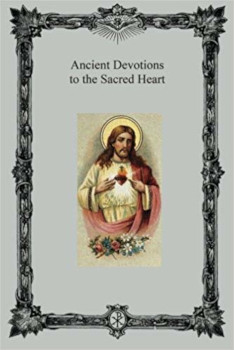
Ancient Devotions to the Sacred Heart
$15.95
When we think of devotion to the Sacred Heart, we think of Saint Margaret Mary. However, this devotion goes back further in history to Saint John Eudes, who wrote on the subject. And now we see that the Carthusians also were following this devotion before Saint Margaret Mary. A glance at these pages will show how justified was Dom Le Masson in claiming that the devotion revealed to St. Margaret Mary and made popular by her effotts was already an old one in the Carthusian Order. Dom Cyprien, before re-editing Dom Le Masson's work, had already written on Lansperge the Carthusian and Devotion to the Sacred Heart. Lansperge had, in fact, a special part in the propagation of the Devotion in the sixteenth century: but he only developed what was a tradition of long standing in his Order. Ludolph the Carthusian had already written before the middle of the fourteenth century in his Life of Christ those words which have been chosen for the opening pages of our present anthology; and from that time on the tradition remained unbroken. Nor was it confined to one Charterhouse, or to one Province of the Order. It is not surprising that many of the writers whose works are quoted belonged to the Rhineland Province, for the Charterhouse of Cologne, which had the reputation of displaying the greatest love for learning of all the Houses of the Order, had a marked influence on the Province. But the pen was not the only instrument used for spreading the Devotion. Not content with writing about the Devotion to the Heart of Jesus, these apostles of love contrived to engrave Its image on the very walls of stone with which their Monasteries were built. The escutcheon reproduced as a frontispiece is worthy of partic'llar notice. It forms the key-stone of an arch at the Grande Chartreuse in that part of the old cloister which was built after the fire of 1473. A cross is seen rising out of a tomb, with the three nails, the rod and the sponge on a reed on the right, and on the left three dice, pincers and hammer, and a scourge. Above are the thirty pieces of silver, and the crown of thorns is hanging on the right arm of the cross. These arms of the Passion are common enough: what is exceptional in the shield of the Grande Chartreuse is the heart in the centre of the cross, with a large wound entirely penetrated by a lance. This has been reckoned as the oldest known carving of the Sacred Heart of Jesus. This work consists of thirty elevations to the Sacred Heart followed by a week devoted to the Sacred Heart. A section is devoted to prayers for all occasions, including preparation for death.

The Fruits of Devotion to the Sacred Heart: A Course of Sermons for the First Fridays of the Year
$9.95
Can we truly know God? asks the world doubtfully to-day. Can the great God love or care for us, as we understand the words? Or is there a man, sinless, unselfish, divine, with a mind and a heart like our own, to teach us the true knowledge and love of God? Is there, in this dark world of ours, a spring of light and love where all may drink and which will never run dry? Brethren, we If whose eyes have seen the King in his beauty" (Isa. xxxiii. 17) fearlessly answer " Yes." Such an one" was seen on earth, and conversed with men," and His" Sacred Heart" is the magic fountain that men crave for. Let us consider the beginning of the first sermon: “By the very nature of His being, God is beyond the comprehension of a creature. Finite mind at its highest, even with the joint light of nature, grace, and glory, can never fully grasp the infinite. It is the sole prerogative of the three divine Persons, to know adequately their own common nature and essence.” In another sermon we read: “Love of the Holy Ghost was a permanent feature of the spirit of Jesus; and is, therefore, intimately linked with devotion to the Sacred Heart. Love and fire are symbols of the heart as they are of the Holy Ghost. Indeed, the Holy Ghost is love in the full limitless sense of the term, the eternal, substantial, mutual love of father and son. We are taught by the Sacred Heart to look up to the Father with filial humility and dependence as Creator, Preserver and Last End; to seek in the Son the divine light, guiding us in reason and faith; but in the Holy Ghost the living fire came down from heaven, the love, the heartfelt enthusiasm that carries us irresistibly forward to virtue, good works, holiness.” Each sermon is divided into three sections, light, love and then duty. And in conclusion: “No more fitting conclusion than this to our thoughts on the fruits of devotion to the Sacred Heart. Briefly put, these fruits are light in the mind, love in the heart and firm purpose of will to carry out all resulting duties, that will make us not merely "hearers but doers of the Word." The main power of the soul are thus exercised and strengthened. The whole field of the soul is made fruitful in light and love, leading to duty in the three great relations of life, those bearing on God, our neighbor, and ourselves. Thus united to the Sacred Heart on earth, we may confidently hope one day to live united with it forever in heaven. For true lovers of the Sacred Heart the sixth beatitude is ever in the way of fulfillment: "Blessed are the clean of heart, for they shall see God."
For More Good Traditional Catholic Books:


Brother Constantine's Greek Salad

Brother Constantine's salad is always a hit, especially in summer when fresh produce is abundant.
If you can't find Greek olives, canned black olives make an acceptable substitute.
"This is an incredibly good Greek salad recipe, nice and tangy and even better in the summer when you use fresh vegetables!"
Ingredients
1 head romaine lettuce- rinsed, dried and chopped
1 red onion, thinly sliced
1 green bell pepper, chopped
1 red bell pepper, chopped
2 large tomatoes, chopped
1 cucumber, sliced
6 ounces pitted Greek olives
1 cup crumbled feta cheese
6 tablespoons olive oil
1 teaspoon dried oregano
1 lemon, juiced
ground black pepper to taste
Directions
1. In a large salad bowl, combine the Romaine, onion, olives, bell peppers, tomatoes, cucumber and cheese.
2. Whisk together the olive oil, oregano, lemon juice and black pepper. Pour dressing over salad, toss and serve.
Father Vasiliy's Caraway Rye Bread

A delightful and substantial loaf for any time of the year. It is a great accompaniment to cold vegetable dishes for your summertime table.Ingredients
2 (.25 ounce) packages active dry yeast
2 cups warm water (110 degrees to 115 degrees), divided
1/4 cup packed brown sugar
1 tablespoon caraway seed
1 tablespoon vegetable oil
2 teaspoons salt
2 1/2 cups rye flour
2 3/4 cups all-purpose flour, divided
Directions
In a large mixing bowl, dissolve yeast in 1/2 cup warm water. Add brown sugar, caraway, oil, salt and remaining water; mix well. Stir in rye flour and 1 cup all-purpose flour; beat until smooth. Add enough remaining all-purpose flour to form a soft dough. Turn onto a floured surface; knead until smooth and elastic, about 6-8 minutes. Place in a greased bowl, turning once to grease top. Cover and let rise in a warm place until doubled, about 1 hour. Punch dough down; divide in half. Shape each half into a ball; place in two greased 8-in. round cake pans. Flatten balls to a 6-in. diameter. Cover and let rise until nearly doubled, about 30 minutes. Bake at 375 degrees F for 25-30 minutes or until golden brown.

Video sermons and instructions: Timeless timely truths for living the Faith
Pentecost 2011
Pentecost, 2013.
Trinity Sunday, 2013.
5th Sunday after Easter 2019 - Why Pray?




Humans Copy the Creator
“Hast thou given the horse strength? hast thou clothed his neck with thunder?” - Job 39:19
If, as we are continually told, evolution is a fact, why is it that human technology improves when we copy designs found in nature? If nature is really a giant trial-and-error experiment, we should not only find evidence of less-sophisticated designs in the distant past, but humans today should be able to improve on designs found in nature.
Science has long known that an object moving through water or air moves with the least resistance when the ratio of its length to diameter is four to one. This ratio is found in the fastest swimmers in the sea – like the tuna, dolphin and swordfish. A Boeing 707, with a ratio of nine to one, experiences much more resistance than the larger, fatter 747, which has a ratio of six to one – much closer to the tuna and the dolphin.
Studies of the vision of the horseshoe crab, supposedly one of the earlier forms of life, have taught engineers how to produce a clearer, sharper television picture. The United States Air Force copied a speed-sensing system from beetles to improve the ground speed indicators of their jets. The optics of a frog’s eye showed them how to improve their radar. The fly’s multifaceted eye taught engineers how to design a lighting system that generates more light with less energy.
Humans are learning from and copying design solutions worked out by their Creator. The brilliant designs in our world are not the result of trial and error. This reality makes the claim that evolution is a fact of science sound empty!

Catechism Catch-Up
Can A Person Forgive Themselves?
You Really Can't Forgive Yourself
For a long time, I have been trying to dispel the notion that somehow we need to be able to forgive ourselves for our past sins. Over and over I have heard people teach this ridiculous principle. This is a humanistic philosophy, not a Biblical one. It is impossible for you to forgive yourself, unless you are the object against whom you have sinned.
Recently, I heard an illustration that perfectly explains this false idea. Imagine if you owed a great debt to someone. Month after month you struggled to make a payment on that debt until you were overwhelmed with frustration. It was taking a toll on you, both financially and emotionally. One day, you decided to just forgive yourself of this debt which you had created. Unfortunately, you would find out rather quickly that your forgiveness means nothing.
You are the debtor, not the creditor: only the creditor can forgive the debt.
When we sin, it is against God and against others not ourselves. David said, “Against Thee, Thee only have I sinned.” He did not say that he had sinned against Bathsheba, Uriah, or the children of Israel. No, David sinned against God. Your sin may have been against others and may have brought harm to them but ultimately is against Christ. (I Corinthians 8:12) “Now when you sin thus against the brethren, and wound their weak conscience, you sin against Christ."
In the same way Matthew 25:35-40 illustrates this. “For I was hungry, and you gave me to eat; I was thirsty, and you gave me to drink; I was a stranger, and you took me in: Naked, and you covered me: sick, and you visited me: I was in prison, and you came to me. Then shall the just answer him, saying: Lord, when did we see thee hungry, and fed thee; thirsty, and gave thee drink? And when did we see thee a stranger, and took thee in? or naked, and covered thee? Or when did we see thee sick or in prison, and came to thee? And the king answering, shall say to them: Amen I say to you, as long as you did it to one of these my least brethren, you did it to me.”
Ultimately we sin against Christ when we sin against others. We are feeding Christ when we feed others. We take Christ in when we take in others etc. Your sin may bring harm to yourself, but your sin is against God.
You cannot forgive yourself of a sin you committed against God. To say you can, is to say there is no God or you are putting yourself in the place of God.
Imagine that one day your creditor called to tell you that he was forgiving your debt. He was going to pay it in full. Now, you have a choice. You can continue to live under the bondage of the debt, and try to pay the debt, or you can accept the forgiveness that your creditor has given you. The same is true with our past sins. We can continue to try and pay the debt for the sins we committed, or we can accept the fact that God paid those debts for us with the blood of His own Son. This does not mean, that you forgive yourself; that means you are living in the forgiveness of your creditor. When we tell someone to forgive themselves, we are literally ignoring God. We are taking God out of the equation. We are debtors to Him and Him alone. He is our creditor. Only he can forgive our past; however, our job is to walk in His forgiveness, not our own.
The next time someone says you just need to forgive yourself, kindly tell them that you cannot forgive yourself, but that your heavenly Father has forgiven you and paid your debt and that you are living in the freedom of HIS forgiveness.
Living Catholic:
How To Gain A Clear Conscience When We Have Offended Someone Part 2
What basic steps should be taken in order to gain a clear conscience when we have offended someone?
In part 1 we said: Take responsibility for your actions.
When you have offended others, gaining a clear conscience involves taking responsibility for your actions, seeking forgiveness, and making restitution. The following steps provide guidelines for examining your heart and making things right with people you have offended.
We started with:
1. Identify those whom you have offended.
In Part 2 we will continue:
2. Carefully choose the right wording.
When the prodigal son decided to return home and ask for his father’s forgiveness, he chose the wording of his confession ahead of time. (See Luke 15:17–21.) You should carefully and thoughtfully select the best words to use in asking for forgiveness. Make sure that the following insights and attitudes are true of your heart and are expressed clearly in your words:
A. Identify the basic offense.
Put yourself in the other person’s place. Relive the offense through his eyes, considering what he must have felt and thought. The offense usually involves an underlying attitude such as ungratefulness, disrespect, dishonesty, self-centeredness, pride, or laziness. Confess your sinful attitudes and specific actions, and ask for forgiveness for them.
B. Demonstrate sincere penance and humility.
Before you go to another person to seek forgiveness for an offence, repent before God and ask for His cleansing and forgiveness. Then as you go to the offended person, let your attitude and manner reflect the humility of one who is asking for something he does not deserve. Be careful not to hint that you “weren’t so bad” or that “they were wrong too.”
Avoid making the following prideful statements:
- “I was wrong, but you were too.”
- “I’m sorry about it, but it wasn’t all my fault.”
- “IF I’ve been wrong, please forgive me.”
Here is a sample of an excellent request for forgiveness: “God has convicted me of how wrong I’ve been in _______________(basic sinful attitude and offense). I’ve come to ask, ‘Will you forgive me?’ ”
WARNING: These are examples of what a true confession to others should be like. These words or words like them MUST come from the heart. If not, people will be able to see through it.
C. Be prepared to make restitution.
Your confession should be accompanied by restitution for any personal loss that the offended one encountered in the situation. If you’re unable to make full restitution at this time, share your plans to do so as soon as possible.

Pray for the Holy Father! Pray with the Holy Father!
- Your prayers are asked this month and every month for the intentions of the Holy Father, Pope Michael.
- Be sure to keep the new foundation of St. Helen Catholic Mission in your prayers. Why not go on over to the site now and see what they have to offer and how you might be able to help!
- Also we ask you to keep in prayer for our New Mission: St. Ignatius of Antioch in Arkansas City, Kansas.
- Your prayers are asked for Father Francis Dominic as he embarks upon the important work entrusted to him within the Church.
- Please continue prays for Brother Stephen's wife who is having health issues. May God grant the swift grace of His healing!
- Prayers for Phil Friedl as he continues to try to locate closer to one of our parishes to worship and to help the Church.
- Pray for those outside the Church and those who do not know God, that they may see the light of grace and be led safely home to the refuge of the Holy Catholic Church.
- As always, we also ask that you pray for yourself! Never forget your own state of soul. God is calling you to His service in His love. We know that our Lord can count on you to answer.
- We are all praying especially for you, too. May you correspond with every grace of God!
- In what other needs or intentions may we pray for you? Let us know!



To Donate by Mail:
Our address is
Vatican in Exile
829 NE Chester
Topeka, Kansas 66616
Make Checks payable to:
Vatican in Exile






 Follow
Follow


